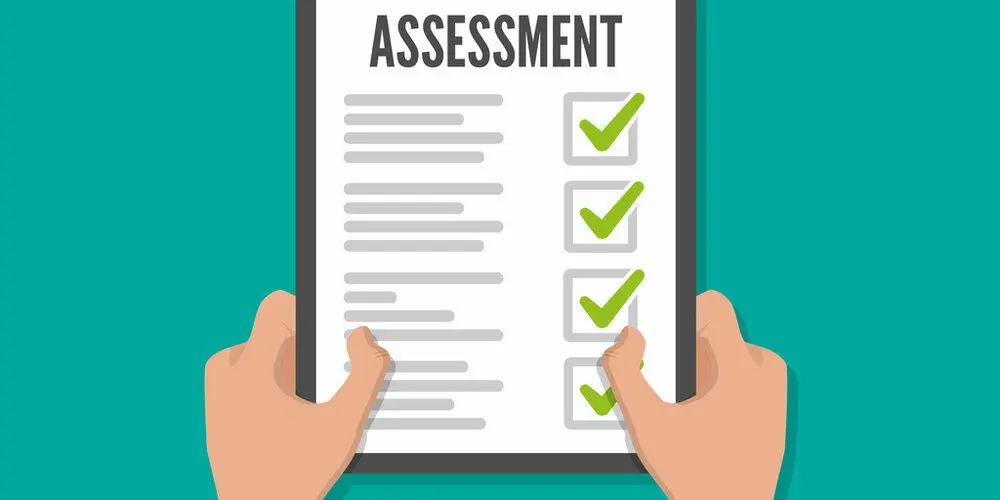Deferred Payment Agreements for Care Home Fees

Estimated Reading Time: 8 minutes
This article was reviewed by Sara Chapin, Director of Finance at Lottie, on 16th December 2024, to ensure accurate and trustworthy information for care seekers. Sara Chapin has been a Certified Public Accountant with the National Association of State Boards of Accountancy since 2017. Next review due December 2025.
Figuring out how to fund care - whether that’s for yourself or a loved one - can be confusing. Thankfully, several options exist, including a Deferred Payment Agreement for care fees.
This may be offered to you by your local council and means that they’ll pay your care home fees on the basis that you repay the money at a later date. This is done by selling your home after you’ve passed away.
In this article, we’ve explained deferred payment agreements, how they work, whether you’re eligible, how to apply, and the advantages and disadvantages.
Kickstart your care search
Discover the best care homes in your area through Lottie.
In this article:
- What is a deferred payment agreement and how do they work?
- Are you eligible for a deferred payment agreement?
- How to apply for a deferred payment agreement
- How much does a deferred payment agreement cost?
- Advantages and disadvantages
- How is income affected?
- Disposable income allowance
What Is A Deferred Payment Agreement And How Do They Work?
Also referred to as a deferred payment scheme, a deferred payment agreement is an arrangement with your local council where they pay for your care and you can repay the money later.
This can happen when you sell your home or after you pass away. Deferred payment agreements are only available for those going into long-term care and take up to 12 weeks to set up.
A deferred payment agreement doesn’t cover short-term stays in care, for example, respite care.
The total value of your property will be used to pay for your fees, meaning you can keep your property while in care. You’ll sign a legal agreement stating that the money will be repaid when your home is sold.
Generally, 70-80% is the maximum value of your home which can be used to pay for fees. This ensures enough money is left to cover any admin fees.

Are You Eligible For A Deferred Payment Agreement?
To be eligible for a deferred payment scheme, you need to meet the following eligibility criteria:
- Your local authority has decided that you need to go into a care home on a permanent basis
- Your total savings are below the upper threshold, not including the value of your property (this is £23,250 in England and Northern Ireland, £35,000 in Scotland and £50,000 in Wales)
- You’re a homeowner
- No partner or dependent is living in this home
If eligible, you can speak with your local authority to discuss the possibility of a deferred payment agreement. You need to have had a care needs and financial assessment - both carried out by your local authority - before looking into deferred payment schemes as an option.
England
In England, to be eligible for a deferred payment allowance, your total savings need to be less than £23,250.
Local authorities in England must offer you a deferred payment agreement if you’re deemed eligible. They should also clearly explain how the process works and the advantages and disadvantages.
Scotland
To be eligible in Scotland, your total savings must be less than £35,000.
If you live in Scotland and need information on deferred payment schemes, Age Scotland can offer help and advice.
Wales
In Wales, your total savings will need to be below £50,000 to be eligible.
Your go-to hub for guidance and other services is the Welsh Government website or Age Cymru.
Northern Ireland
There isn’t a formal deferred payment system in Northern Ireland. However, you can still speak to your local Health and Social Care Trust to check whether this is available to you.
How To Apply For A Deferred Payment Agreement
You must first arrange a care needs assessment from your local council. You can apply for a needs assessment from social services here. This will be immediately followed by a financial assessment, which will determine the total value of your income, savings and assets.
If you’re assessed as needing to move into a care home, and your total savings and assets (excluding any property) are below your country’s threshold, you can request a deferred payment agreement.
Sometimes, your local authority will offer you a deferred payment agreement, even if you don’t meet all the requirements. They may do this if they think you’d benefit from the scheme.

If you disagree with the decision
If you feel you’ve been unfairly denied a Deferred Payment Agreement, you can request an explanation from your local council. If you aren’t happy with the answer, you can then raise a formal complaint.
How Much Does A Deferred Payment Agreement Cost?
Your local council will often charge you an administration fee to pay for the cost of setting up a deferred payment agreement. For example, the Plymouth City Council states that they charge £625 to set up a deferred payment agreement, which includes having your property valued.
There may also be additional administrative fees, covering things like Land Registry fees, postage and printing costs. Or, they may all be covered in the initial fee.
Remember that a deferred payment agreement is a loan, so there will also be interest rates to pay on top of the original amount loaned by your local authority.
In England and Wales, local councils can choose the amount of interest they charge (although this cannot exceed a government-approved standard rate), while in Scotland, there aren’t any interest charges unless the agreement is ended or it’s 56 days after the person passed away.
With this in mind, we’d recommend seeking additional information and legal advice from financial advice services before you make any final decisions or sign anything.

Advantages
- You’ll be informed about the cost of your care fees, the total amount of your fees that will be deferred and how much money you’ll need to pay back to your local authority
- You don’t have to sell your home during your lifetime if you don’t want to
- While you sort out your financial affairs, your local council will either pay the care home directly or lend you the money to do so
- If you’re entitled to Attendance Allowance, Disability Living Allowance or Personal Independence Payment, you can continue to claim these benefits, even if you enter a Deferred Payment Agreement
- While you’re in a care home, the value of your property may increase, which will help you contribute towards care costs
Disadvantages
- Care costs aren’t written off and will have to be repaid eventually
- A deferred payment agreement is a loan, so agreed interest and charges are added to the cost of your care fees
- Letting your property out can be challenging to manage (some people choose to rent out their homes for extra income)
- If you’re already part of an equity release scheme, you may not be eligible for a Deferred Payment Allowance
- The amount of inheritance you have to leave will likely be reduced
- You’ll still have to pay maintenance costs and insurance for your home, along with a mortgage on your property if you have one
How Is Income Affected By a Deferred Payment Scheme?
Your local council will consider any income that you have, including your State Pension and any other state benefits or private pensions you receive. Unless you have a relatively low income, you’ll normally need to contribute part of your income towards your care home fees.
A deferred payment scheme doesn’t affect how your income and savings are assessed when determining how much you should pay towards care.
Disposable Income Allowance
The disposable income allowance means that if you have a deferred payment agreement, your local council has to consider any costs spent on maintaining your home when deciding how much you’ll pay towards care fees. This is only applicable in England.
A disposable income allowance allows you to keep a minimum amount each week - £144 - which can then be spent on paying for bills, insurance and maintenance costs.
You can also pay more towards your care home fees and reduce your disposable income allowance. Doing so would reduce the amount you owe to your local council through your deferred payment scheme.
Seek Expert Advice First
A deferred payment agreement is a loan, so we recommend seeking professional independent financial advice before entering into a contract.
It’s essential to fully understand all the potential implications of deferred payment agreements before making any final decisions.
Loading the form...



